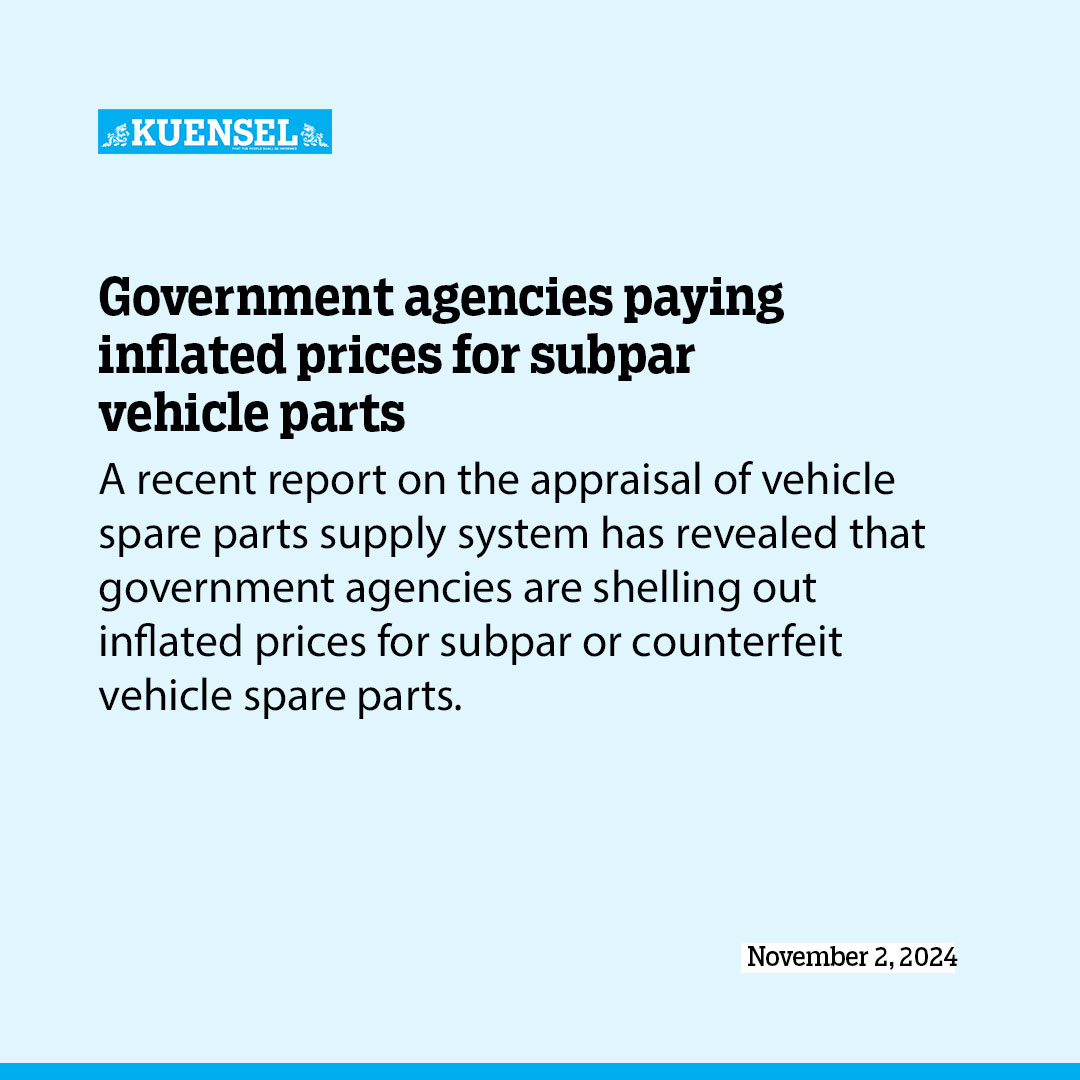Sherab Lhamo
A recent report on the appraisal of vehicle spare parts supply system has revealed that government agencies are shelling out inflated prices for subpar or counterfeit vehicle spare parts.
The Competition and Consumer Affairs Authority (CCAA) conducted a study to validate concerns regarding government agencies frequently receiving counterfeit or inferior quality parts at inflated prices, and explore alternative strategies that would benefit government agencies without compromising the role of the private sector in this burgeoning business sector.
The CCAA report findings highlight serious inefficiencies in the procurement process.
The study analysed prices for frequently used spare parts of popular vehicles like Toyota Hilux and Isuzu D-Max, comparing quotes from multiple suppliers to the 2024-25 Annual Procurement Prices (APP) set by the Ministry of Industry, Commerce and Employment.
Alarmingly, the report found that government prices often fall significantly below market averages, raising red flags about quality.
The primary countries of origin for spare parts for these vehicle brands are Japan, Thailand, and India. The spare parts market is predominantly populated by numerous aftermarket brands, which, while generally cheaper, often compromise on quality, the report states.
The APP for Toyota Hilux parts was significantly lower than the average market price, with some disparities reaching up to 90 percent, due to exceptionally low prices offered by some suppliers. Toyota Hilux parts, particularly radiator prices ranged from Nu 3,500 to Nu 14,300, leading to a lower average of around Nu. 9,489.89.
For Isuzu D-Max spare parts, around 45 percent of the spare parts were higher than the average market price, with some prices exceeding the highest market price.
The study showed that the APP for certain parts, such as brake shoes supposedly imported from Japan was only Nu 100, unrealistically low, raising serious concerns about their quality and authenticity.
The APP and the average market prices for Hyundai Creta spare parts was around 65 percent lower than the average market price.
In general, the APP was significantly lower than average market price, sometimes by up to 99 percent, raising concerns about the authenticity and quality of parts. Wide price variations among suppliers also indicate the presence of diverse aftermarket parts options of varying quality.
Aftermarket parts means parts produced by other companies, often varying significantly in price and quality. The spare parts market is predominantly populated by numerous aftermarket brands, which, while generally cheaper, often compromise on quality, according to the report.
“To completely mitigate risk of receiving counterfeit or inferior spare parts, procurement agencies need to prescribe more detailed specifications for each part for bidding, ensuring that only genuine or OEM parts are supplied,” the study recommends.
The report also proposes incorporating warranty periods into procurement criteria, incentivising suppliers to deliver higher-quality products—currently absent from official tenders.
Given the potential safety risks associated with substandard parts, the report suggests that Bhutan Standards Bureau could play a crucial role by establishing technical standards for essential components. This could begin on a voluntary basis, eventually transitioning to mandatory requirements, ensuring that only high-quality parts are available.
This will help ensure that only genuine or OEM parts, or aftermarket parts meeting safety standards are available, the report states.
The report recommends a separate procurement process for critical engine components, suggesting that while initial costs may rise, long-term benefits could include improved vehicle performance and safety.


